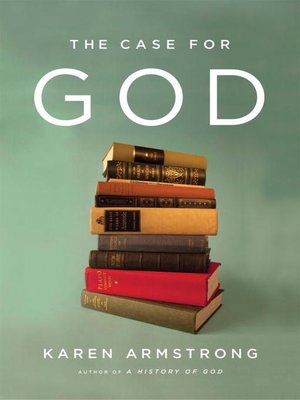
Sign up to save your library
With an OverDrive account, you can save your favorite libraries for at-a-glance information about availability. Find out more about OverDrive accounts.
Find this title in Libby, the library reading app by OverDrive.



Search for a digital library with this title
Title found at these libraries:
| Library Name | Distance |
|---|---|
| Loading... |
From the bestselling author of A History of God and The Great Transformation comes a balanced, nuanced understanding of the role religion plays in human life and the trajectory of faith in modern times.
Why has God become incredible? Why is it that atheists and theists alike now think and speak about God in a way that veers so profoundly from the thinking of our ancestors?
Moving from the Paleolithic Age to the present, Karen Armstrong details the lengths to which humankind has gone to experience a sacred reality that it called God, Brahman, Nirvana, Allah, or Dao. She examines the diminished impulse toward religion in our own time when a significant number of people either want nothing to do with God or question the efficacy of faith. With her trademark depth of knowledge and profound insight, Armstrong elucidates how the changing world has necessarily altered the importance of religion at both societal and individual levels. And she makes a powerful, convincing argument for structuring a faith that speaks to the needs of our dangerously polarized age.
Why has God become incredible? Why is it that atheists and theists alike now think and speak about God in a way that veers so profoundly from the thinking of our ancestors?
Moving from the Paleolithic Age to the present, Karen Armstrong details the lengths to which humankind has gone to experience a sacred reality that it called God, Brahman, Nirvana, Allah, or Dao. She examines the diminished impulse toward religion in our own time when a significant number of people either want nothing to do with God or question the efficacy of faith. With her trademark depth of knowledge and profound insight, Armstrong elucidates how the changing world has necessarily altered the importance of religion at both societal and individual levels. And she makes a powerful, convincing argument for structuring a faith that speaks to the needs of our dangerously polarized age.







